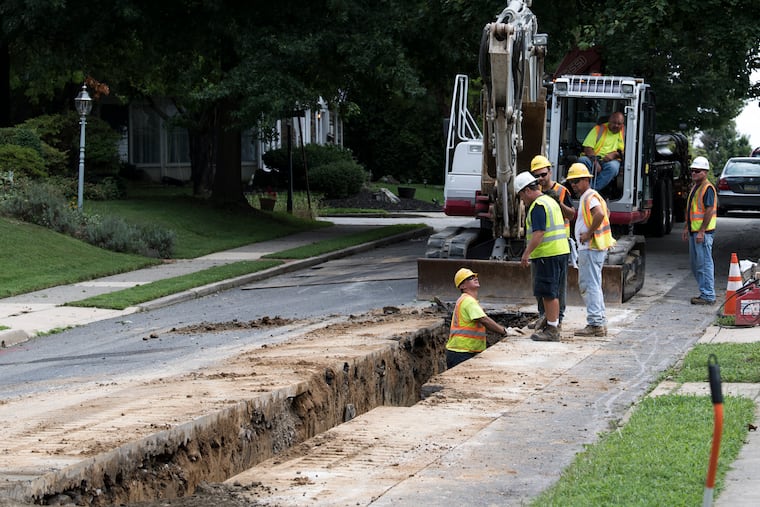Four steps to keep water affordable in Pennsylvania
Ratepayer costs have increased over $85 million per year to fund Aqua’s and American’s profits and increased costs.

It has been seven years since Pennsylvania passed Act 12 legislation that allows Aqua Pennsylvania and Pennsylvania American Water free rein to acquire municipal water and sewer systems. According to our calculations, they have made 17 acquisitions costing over $850 million. Seven more ($1 billion) are proposed or pending approval. Who benefits from this?
The water companies benefit. The more a company invests, the greater the profits. It is a can’t lose situation. Therefore, companies aggressively seek to buy municipal systems and pay top dollar for them.
Municipalities are more complex. They are hounded to fund all kinds of causes. The water companies’ promise of “free” money without a tax increase is highly seductive. Some elected politicians are likely to see it as being in their best interest for career advancement. Often they are quick to grab the money. What they do not understand, or choose to ignore, is that this “free” money is the most expensive way to fund their projects. They are not serving the best interests of their constituents, who are left to pay the bill.
The Pennsylvania ratepayer is definitely not benefiting. I estimate that ratepayer costs have increased over $85 million per year to fund Aqua’s and American’s profits and increased costs. Pending acquisitions could double that amount.
Early acquisitions did not draw much attention because ratepayers did not understand what was coming. Deceptive tactics during the sale hid the size of the rate increases. Many ratepayers have now experienced rate shock and realize that their elected officials sold them out for some very expensive “free” money.
According to our calculations, using a typical 4,000 gallons/month, rates for acquired sewer customers have increased as follows:
Ratepayers are now more aware of the acquisition downsides. As a result, recent acquisition attempts have been met with stiff resistance. Several proposals have been abandoned because of this resistance, including:
These were cases where elected officials favored the sale, but had to bow to public pressure. Tredyffrin also rejected a $75 million offer, but did so willingly after listening to public input and doing an objective analysis. Kudos to Tredyffrin.
Water companies have not slowed acquisition efforts, but the process has become more stealthy. Sale negotiations take place behind closed doors. Usually, the company will not even acknowledge that sale discussions are going on. Once a deal is reached, there is a public announcement and things begin to proceed rapidly.
Normally, there are public meetings to promote the sale of a municipal water or sewer system. These meetings are often scheduled quickly before significant opposition can form. At these meetings, the proponents of the sale have unlimited time to make their case. They generally make slick presentations that gloss over critical issues. I have also noticed on multiple occasions that opposing groups are not permitted to make presentations or ask questions. Individual opposition is suppressed by allowing residents to only make brief statements. The elected officials then predictably vote to sign the sales contract, even with significant public opposition.
The best interests of the ratepayer are not being served. Transparency and ratepayer participation need to be prioritized as part of the sale process in Pennsylvania. Keeping Water Affordable recommends the following four legislative changes:
Act 12 should be repealed. Its main impact has been to increase the profits of the water companies and tempt elected officials.
Ratepayers must approve any sale. Municipal officials must conduct a binding ratepayer referendum to approve or reject sales. Voting materials must include promotional materials from both the proponents and opponents of the sale.
Both sides should be afforded equal opportunity to make their case. For each meeting controlled by the proponents, there should be a meeting run by opposition groups. The acquiring company and elected officials must be present at all meetings.
There should be full and complete disclosure of the negotiation documents that led to the proposed deal. Nondisclosure agreements or claims of attorney-client privilege should not be permitted to hide relevant information from the public.
Unneeded rate increases are sucking wealth out of the pockets of Pennsylvania ratepayers. Contact your state senator and representative to advocate for these needed changes.
Bill Ferguson is a resident of Landenberg, Pa. and a cofounder of KWA — Keep Water Affordable. keepwateraffordable@gmail.com